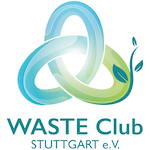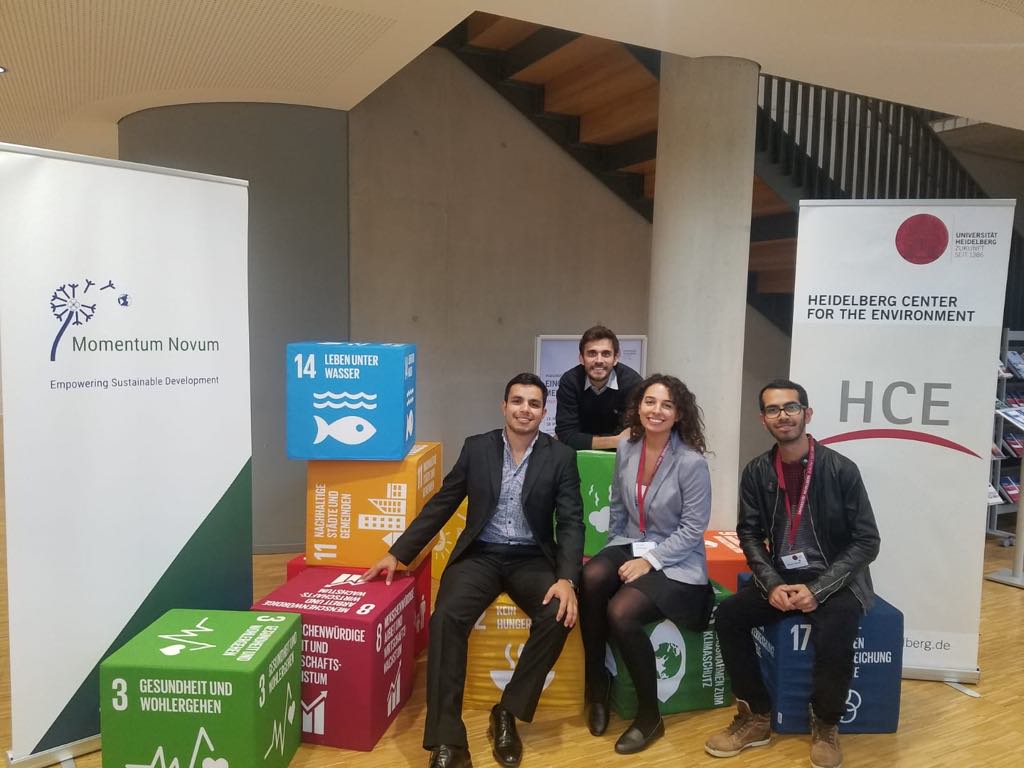Knowing that the environment is critical for survival is something that every WASTE student is acutely aware of. Figuring out how to engineer sustainable solutions is why we came to Stuttgart. And several of us went further on to Heidelberg to learn how to integrate sustainability into development. From November 1st to the 3rd, we had the opportunity to attend the Sustainable Development in Action conference held in the beautiful city of Heidelberg. The focus of the conference was to introduce the many facets of sustainable design and innovation through inspirational keynote speakers, informative workshops, and insightful Action Labs.
The opening keynote speaker of the conference shared with us the importance of making personal changes in the move towards sustainability. Igor Ramos (Gen. ’18) summed up the beginning of the conference:
“The first opening speech could not have been more motivational. We are so used to thinking way ahead of what our hands can achieve, therefore we act thinking that any personal change is too small to make a significant difference. We do not realize, however, that this is how we create demand, step by step. Change yourself and the people surrounding will change their minds too, and then soon a domino effect is created. As a postcard shared at the Conference stated: “My one plastic bottle won’t make a difference”. Repeat it 7.6 billion times””.
The workshops occurred on the first day of the conference. Topics such as the different response to climate change due to political and scientific factors, the impact of climate change on health, and using Geo-Data for sustainable development were discussed in groups. Salua Moussawel (Gen. ’18) attended the one workshop called “The Climate Fight is a Street Fight: The Politics of Mobility in Copenhagen and San Francisco”. The difficulties of implementing policies for increasing bicycle use were explained and how movement towards such policies often results in politicized fighting. Salua noted, “It was fascinating to see how major polluters showed such a high number [of cars], accompanied later with facts that showed these same countries are well suited for higher bike use”.
Kelly Rini (Gen. ’18), on the other hand, attended a workshop on The Role of Innovation and Technology for Sustainable Development and explained it as follows:
“Our first workshop speaker shared his expertise in Efficient Resource Management, which allows for less natural resources to be used while motivating companies to reduce costs. I learned that innovation in sustainable manufacturing leads to decoupling natural resource use from economic growth. This means companies can still increase profits while reducing their impact to the environment.
Our second speaker introduced an innovative concept of adding a marker to plastic packaging, which leads to marked plastics being sorted more efficiently and results in a higher rate of recycling. My team’s task was to identify the stakeholders, market barriers, and consumer responses to this new technology to illustrate the rebound effect of a sustainable innovation not being as effective as anticipated”.
As the conference moved into the second and third days, we flexed our creativity and ingenuity through four different Action Labs. These labs were Design Thinking, Simulation of the 24th Conference of the Parties, Scenario Modelling, and Sustainable Startup. These sessions were designed to foster practical knowledge of the delegates on the different concepts used in sustainable development, as is explained below, each by one attendee.

